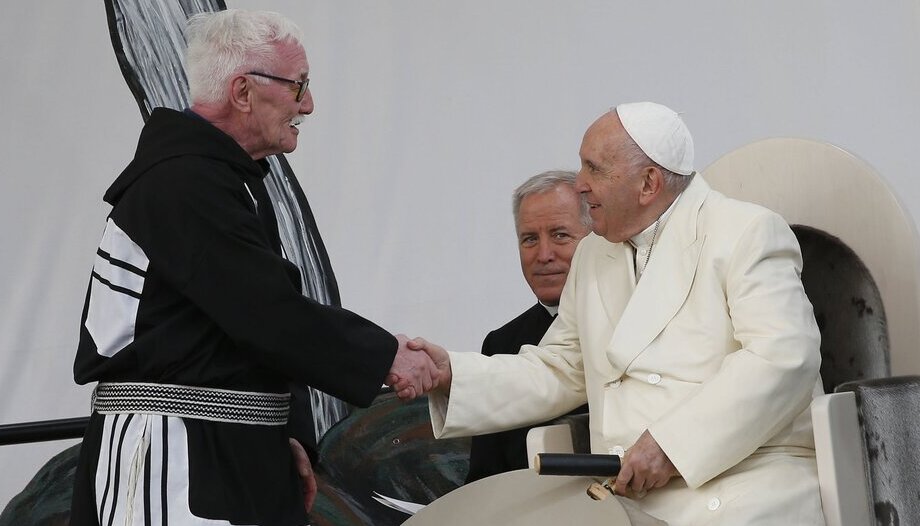In recent years a new narrative is growing about the colonization of America and the evangelization carried out by Spain and other countries. Of course, not everything was done well and history must bring all the facts to light. However, it seems that many important nuances are not being taken into account in the public debate. The woke culture is imposing a narrative based on resentment and not very favorable to serene dialogue on many issues.
The headlines in the press often do not help either, as was seen in the Pope's recent trip to Canada. Undoubtedly, the main message was to ask forgiveness from the indigenous people for the collaboration of the Church in the state schools for the re-education of children. The empathy and humility shown by Francis have conquered the hearts of many people of the native peoples of these regions, who have accepted the apology with gestures that have gone around the world in a multitude of photographs.
However, Francis has been far from acknowledging the truth of all the stories that have come to light in recent years about the residential schools, especially the idea that there was a real genocide. The nuance is very important, but perhaps the public has been left with the idea that the Pope has acknowledged more than he has actually said.
I believe that the truly humble and approachable manner that Francis has shown is the image that has remained most impressed by this trip, but it is important not to lose all the nuances of his words. Unlike what big governments and corporations do today when they make mistakes, the Church is not only dedicated to compensating the victims. It also apologizes publicly on numerous occasions and its highest representatives - think Francis or Benedict XVI - have met personally and frequently with those affected.
In my opinion, this way of proceeding is appropriate, but it should not lead us to think that corruption and sin are what abound most in the Church. If that were the case, it would have ceased to exist long ago, because no institution can survive for long if it is nestled in bad things above all. The success of Elvira Roca's great work of historical popularization, "Imperiofobia", and other books of the same style are highlighting the positive aspects of the Church's social contribution, which is undoubtedly a great deal. Moreover, this corrupt perception of the Church is far from being the norm in the daily life of most Catholics when they go to their parishes and deal with their priests.
In conclusion, I think we should be humbly proud of how the Church recognizes and fixes its mistakes, while perceiving that most of the things it does are very positive. Moreover, today's society lives and demands Christian ideals without realizing it.
Editor of Omnes. Previously, he has been a contributor to various media and a high school philosophy teacher for 18 years.








